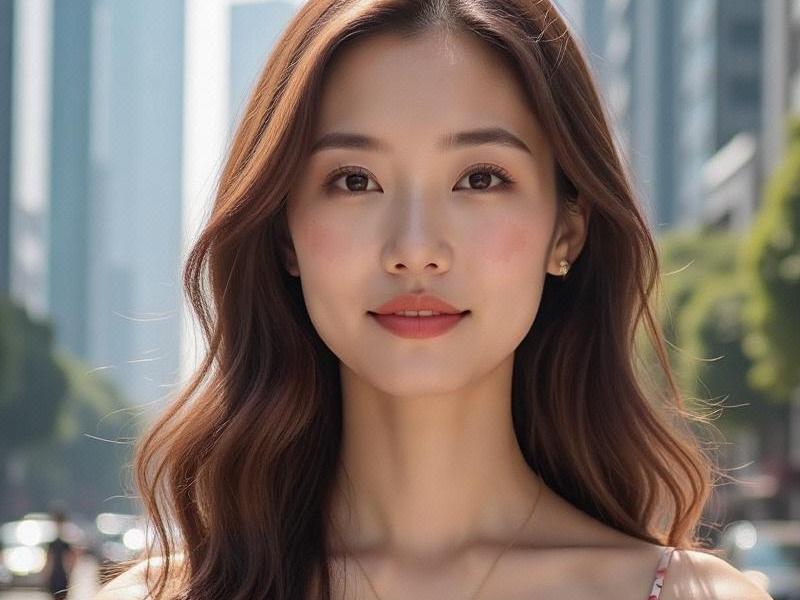Shanghai Splendor: The New Generation of Shanghai Women Redefining Urban Femininity
⏱ 2025-07-07 02:40 🔖 上海龙凤419
📢0℃

The morning crowd at %Arabica on Wukang Road reveals a telling snapshot of contemporary Shanghai femininity. Among the caffeine-fueled hustle, young professional women in tailored suits discuss startup funding while nearby, art students sketch designs between sips of matcha lattes. This is the new face of Shanghai womanhood - ambitious, cultured, and effortlessly cosmopolitan.
Shanghai has long been China's fashion capital, but today's Shanghainese women are making waves far beyond the runway. Women now hold 42% of senior management positions in Shanghai-based companies, compared to the national average of 31%. Tech entrepreneur Vivian Wang, whose AI startup recently reached unicorn status, exemplifies this trend. "My grandmother couldn't read, my mother was a factory worker - I'm living their wildest dreams," says the 32-year-old CEO.
新上海龙凤419会所 The city's creative industries showcase another dimension of Shanghai femininity. At places like the Power Station of Art, young female curators are redefining China's contemporary art scene. "We're moving beyond the 'porcelain doll' stereotype," explains rising star curator Li Xue, whose groundbreaking "Women in Flux" exhibition toured three continents. Meanwhile, Shanghai-born designer Mengzi Zhao's fusion of qipao silhouettes with streetwear has gained international acclaim.
Fashion remains a powerful form of self-expression. The "Shanghai Look" - characterized by sophisticated minimalism with playful accents - dominates local boutiques. Unlike Beijing's bold statements or Guangzhou's commercial flair, Shanghai style whispers refinement. "It's about looking expensive without trying," observes French Vogue editor Isabelle DuPont during Shanghai Fashion Week.
上海龙凤419杨浦
Social changes are equally profound. While marriage rates decline nationally, Shanghai's educated women are pioneering alternative lifestyles. Bookstores host thriving "single women's clubs," and co-living spaces cater specifically to female professionals. "We're rewriting the script," says sociologist Dr. Wu Lan at Fudan University. "Traditional gender roles don't fit Shanghai's reality anymore."
上海龙凤阿拉后花园 Yet traces of old Shanghai endure. Sunday tea at the Peace Hotel still sees matriarchs in vintage cheongsams presiding over family gatherings, passing down culinary traditions and business acumen alike. Young women increasingly balance these inherited values with global perspectives - what local media calls "Hu-style feminism."
As evening falls along the Bund, the city's women transition from boardrooms to cocktail bars, from art studios to dance clubs. In their fluid movements between roles and spaces, they embody Shanghai's essential duality - deeply Chinese yet resolutely international, traditional yet innovative. More than any skyscraper or shopping mall, these women represent Shanghai's vibrant present and its limitless future.
"Concrete Palimpsest: How Shanghai Writes Its Future Without Erasing Its Past"Beyond Beauty: The Multidimensional Lives of Shanghai's Modern Women【文化观察】当革命历史遇见数字技术:上海红色文旅的破圈之路Shanghai and Beyond: Exploring the Yangtze River Delta's Economic and Cultural Powerhouse【社区商业新生态】上海"15分钟生活圈"的智慧化实践样本The Shanghai Glow: Decoding the Allure of China's Most Stylish WomenShanghai: A Dynamic Lifestyle MosaicShanghai's Entertainment Revolution: How Nightclubs Are Driving the City's Cultural Renaissance【都市观察】上海女子图鉴:从张爱玲到陈芋汐的百年时尚进化论【潮汐之间】上海与周边城市的十二时辰对话录

